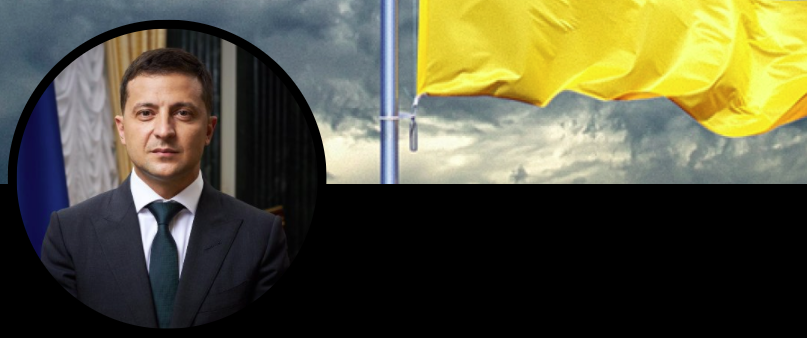As Russia’s attack on Ukraine heads into its second week, corporations around the world are taking unprecedented action. Here are some of the more notable actions as of this writing. This is changing rapidly, and far from comprehensive; I encourage you to verify directly with the companies what their current policy is.
UPDATE, March 5th 2022: Visa just announced they are suspending all Russia operations.
Want the latest? Here’s a preformatted Google query you can use: (“suspends” + “russia” + “ukraine”). Drag it to your Favorites and glance at it every now and then. Pretty remarkable.
Apple: The global tech leader has paused product sales in Russia. It’s limited access to its mobile payment service Apple Pay. It has disabled traffic and live updates Apple Maps. And on its App Store, it has restricted the availability of Russian state media apps, including RT and Sputnik, for download outside Russia.
Microsoft: President and Vice Chair Brad Smith stated on Friday that Microsoft is “horrified, angered and saddened” by the images coming in from the war in Ukraine, and condemns the action as unjustified and unlawful. It suspended all new sales of Microsoft products and services in Russia. In addition, they have already blocked cyberattacks and pledged continuing work with Ukraine on cybersecurity.
Oracle is halting its Russian operations.
Exxon has announced it is halting its Russian oil operations, and it will “make no further investments in the country.”
Boeing has ceased providing parts, maintenance and technical support services to airlines in Russia. Boeing has also closed its offices in Moscow and in Ukraine’s capital of Kyiv.
Nike is its closing stores and pausing operations in Russia.
Meta: The rebranded social network that owns Facebook, Instagram, and WhatsApp restricted access to RT and Sputnik within the EU and prohibited Russian state media from running ads or monetizing on its platforms anywhere in the world. Facebook also refused to stop fact-checking and labeling content from Russian state-owned news organizations — a move that the country called “censorship.”
Amazon has not yet said it is altering operations, but has pledged $5 million in donation to on-the-ground organizations, and will match up to $5 million more in employee donations.
Alphabet: Google’s parent company has removed Russian state-funded media, including RT, from its news-related features and the Google News search tool. It also paused Russian state media services’ ability to monetize through Google Ads on its websites and apps. In addition, it has banned Russian state media from using Google tools to buy ads and from placing ads on Google services, like Gmail. Google Pay, the company’s digital wallet, blocked several Russian financial institutions from its network. Google temporarily disabled Google Maps live traffic data in Ukraine, following reports it was being used to track the movements of Ukrainian civilians and soldiers.
A widely circulated photo on Twitter appears to have confirmed that Google Pay and Apple Pay have been restricted:

IKEA has shut its 17 stores in Russia and is suspending exports and imports in and out of both Russia and Belarus.
Cogent Communications, a major long-haul Internet provider, said today it will begin shutting down Russian customers’ access to its services. This will be effective Friday March 4th, 12PM Eastern time. The CEO said their decision was swayed by signs that Cogent’s network may have been used in carrying out some cyberattacks.
SpaceX‘s Starlink terminals arrived in Ukraine on Monday, the country’s vice prime minister confirmed.
Ford has closed its three plants in Russia indefinitely.
T-Mobile has extended waiving international long-distance and international roaming charges for calls made to/from US and Ukraine, Belarus, Hungary, Moldova, Poland, Romania, and Slovakia for T-Mobile and Sprint postpaid consumer and business customers through March 9, and T-Mobile Prepaid and Metro customers through March 9. They are also making two text-to-give codes available to two specific non-governmental organizations (NGO’s), which can be found here.
General Motors has suspended operations in Russia.
Jaguar Land Rover, Aston Martin and Rolls-Royce have halted deliveries of vehicles to Russia.
Twitter has restricted ads and other content from Russian state media.
Meta and YouTube have restricted content from certain Russian media outlets.
At this writing, McDonalds, Starbucks, PepsiCo and Coca Cola have not announced any changes to sales in Russia, and are under increasing pressure from activists online. Some have announced they are donating food to those in Ukraine.
Shell announced it would end its $3 billion partnership with Russian state energy company Gazprom.
Netflix said it would not broadcast 20 state-run propaganda channels in Russia, defying a Russian law on “must-carry” channels.
In the world of sport, FIFA and UEFA have suspended Russian clubs and national teams from all competitions. The International Skating Union, the body which runs that sport around the world, declared that no Russian or Belarus athletes shall be invited to competition. Skiing, rowing, badminton federations have all banned Russian and Belarusian participation. Major tennis bodies have not yet restricted competitors from Russia.
BP said it is divesting its $14 billion stake from Russian oil giant Rosneft over the invasion.
Disney, Sony and Warner Bros. are pausing planned film releases in Russia.
J.P. Morgan Asset Management suspended trading in two of its equity funds with Russian ties, per a spokeswoman.
France’s Societe Generale warned on March 3rd that Russia could strip the French bank of its local operations and assets. Their $20 billion exposure in Russia is among the largest of Western banks.
FedEx and UPS have suspended shipments into Russia.
Half of the world’s container ships will no longer go to and from the country.
Airbnb announced free accommodation for 100,000 Ukrainian refugees. The company said that more than 25,000 people had visited the link for hosts since. Several consumers are using Airbnb to send money directly to “hosts” in Ukraine and neighboring countries.

